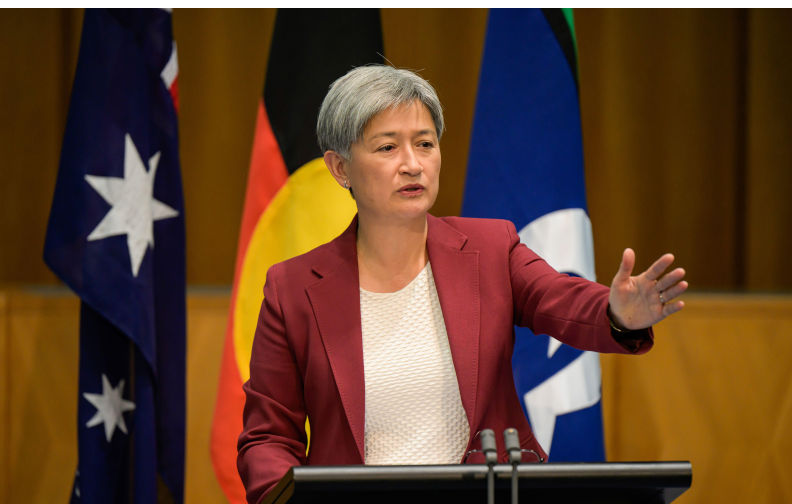Espionage death sentence the latest challenge to China–Australia relations
June 18, 2024
Australian citizen Yang Hengjun’s death sentence for espionage in China has complicated the improvement of China–Australia relations. The case highlights concerns about China’s legal system, particularly regarding national security cases where the judiciary lacks transparency and independence. Despite international condemnation, China continues to issue numerous death sentences. The case also underscores the growing mistrust and espionage concerns between China and the West, which have implications for individuals and firms caught between the two sides.
On 5 February 2024 Australian citizen Yang Hengjun was handed a suspended death sentence by a Chinese court for alleged espionage. The sentence was a setback for China–Australia relations, which have otherwise stabilised and even somewhat improved in 2024.
Commentators have speculated that the sentence was a deliberate affront to Australia, either by security agencies or by the central government. But death with reprieve is becoming more common in China following international condemnation of the high rate of death sentences. It is most likely that domestic politics and the Chinese legal system determined the outcome in Yang’s case. If it was intended as a rebuff to Canberra’s somewhat tentative stabilisation of diplomatic relations, it had the opposite effect, as it greatly shocked the Australian public.
The verdict of the Beijing No. 2 Intermediate People’s Court was issued in public and witnessed by representatives of the Australian Embassy, but little information on Yang’s alleged crime or the reasons for the court decision has been revealed. His 2021 trial was held behind closed doors since it allegedly involved security matters and Australian Ambassador Graham Fletcher was denied access to the proceedings.
Yang Hengjun had worked for more than 10 years for the Chinese Ministry of State Security, including in Hong Kong and Washington. He may well have been engaged in spying for China in some form, but he may also have exaggerated his role. It is not known whether he continued to work for China after moving to Australia or whether he was a spy for another country.
He did publish a series of Chinese-language novels concerning a double agent that might have drawn on his personal experience. Former foreign minister Marise Payne stated in 2021 that Yang was not working for Australian intelligence, a rare public denial of such cases. The Chinese court that found him guilty of espionage apparently did not link him to Australian intelligence. Yang himself consistently pleaded not guilty.
Yang’s doctoral thesis at the University of Technology Sydney discussed what his supervisor, Feng Chongyi, has called ‘the complicated information warfare between the internet and the CCP regime’. He later engaged in cross-border trade between China and the United States. Having moved to New York and become a widely followed pro-democracy blogger, he took up daigou exporting — a widespread practice that is sometimes illegal and sometimes exploits legal loopholes in the Chinese tariff regime.
All these activities may have led to Yang’s detention by Chinese authorities during a visit to China in 2019, but it was espionage that led to his trial and death sentence.
According to Amnesty International, China issues thousands of death sentences every year, more than the combined total for the rest of the world. Public opinion surveys in China confirm widespread support for the practice, while international human rights organisations and many foreign governments condemn it. Capital punishment applies in cases ranging from murder to corruption and drug trafficking. Most are serious violent and non-political offences, but political crimes such as endangerment of public security and espionage can also invoke the death penalty.
China’s 2023 revised Counter-Espionage Law reflects growing concern over national security in a period of growing international tension, competition and hostility. As talk grows of decoupling between China and the United States, the activities of the China-based offices of US firms have come under suspicion. Management consulting firm Bain, the Mintz Group and Capvision have all been raided and have had their staff detained. The new law stresses the need for vigilance but is vague about the exact scope of risks. At the street level, foreigners feel that they are often viewed with suspicion.
Weasel words about state secrets, foreign threats and national security are not exclusive to China but are more dangerous when trotted out by a government agency and not open to debate or reason by an outside arbiter.
This is the case with the Chinese legal system, since the judiciary is not independent of the government and police, judges and magistrates are all employed by the state in a one-party system_._ The Chinese Communist Party’s Political and Legal Affairs Commission, in its national and subsidiary layers, ultimately controls the legal system and its personnel. Defence lawyers exist but have limited roles compared with their counterparts in the West. Branches of the Communist Party ensure that government directives and national priorities are observed. This is particularly the case when national security is concerned.
The West is of course spying on China. At the same time, concerns are growing over Chinese espionage in Europe, the United States and even Australia. Revelations and press reports stoke mistrust on both sides which in turn affects life and death decisions for those caught up in this murky world.
Yang Hengjun’s sentence for espionage was suspended and may be commuted in the future. That moderation probably owes a good deal to hard work by Foreign Minister Penny Wong and departmental officials, and to the improvement in bilateral relations.
Republished from EASTASIAFORUM, June 11, 2024
For more on this topic:

